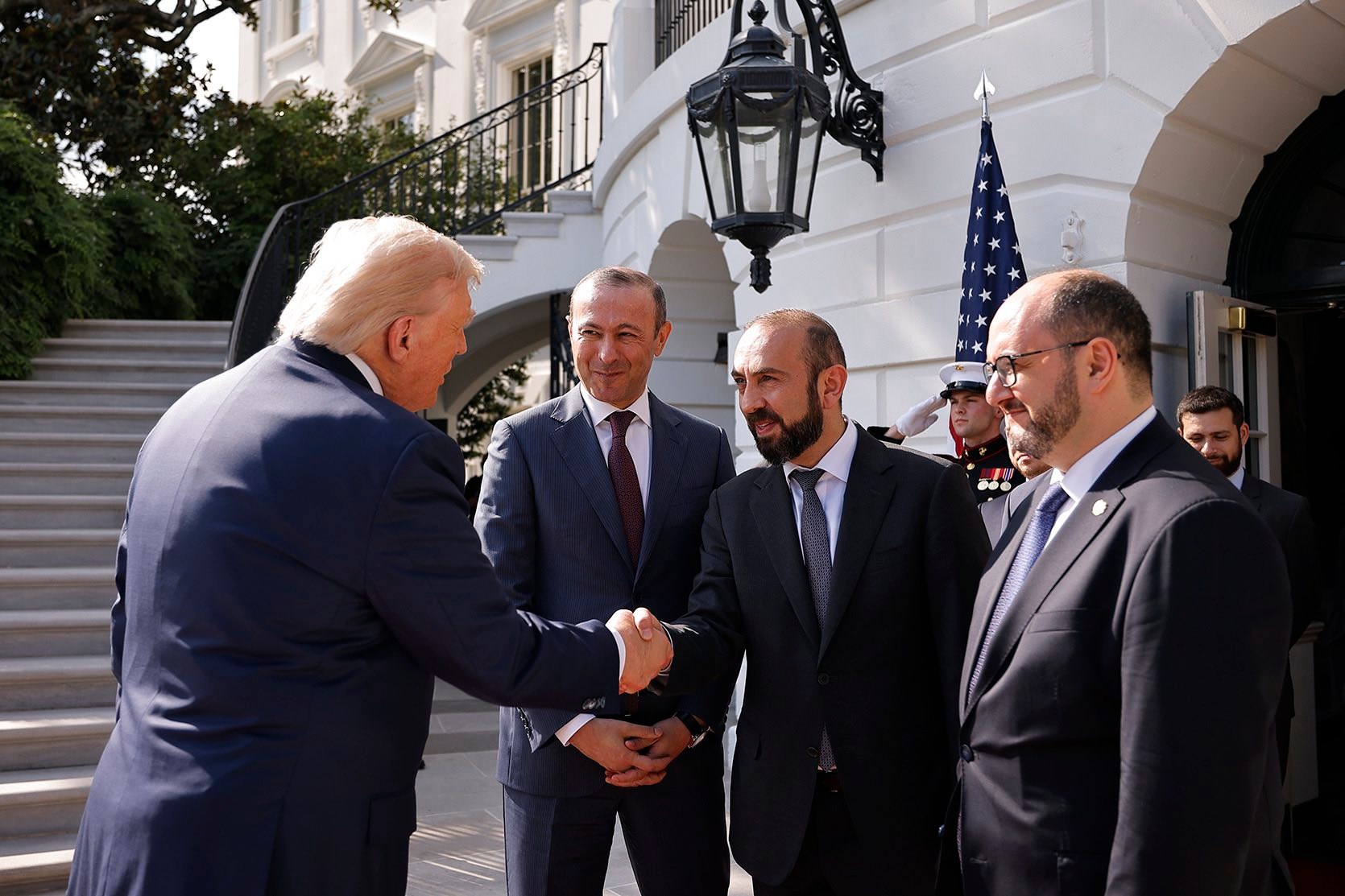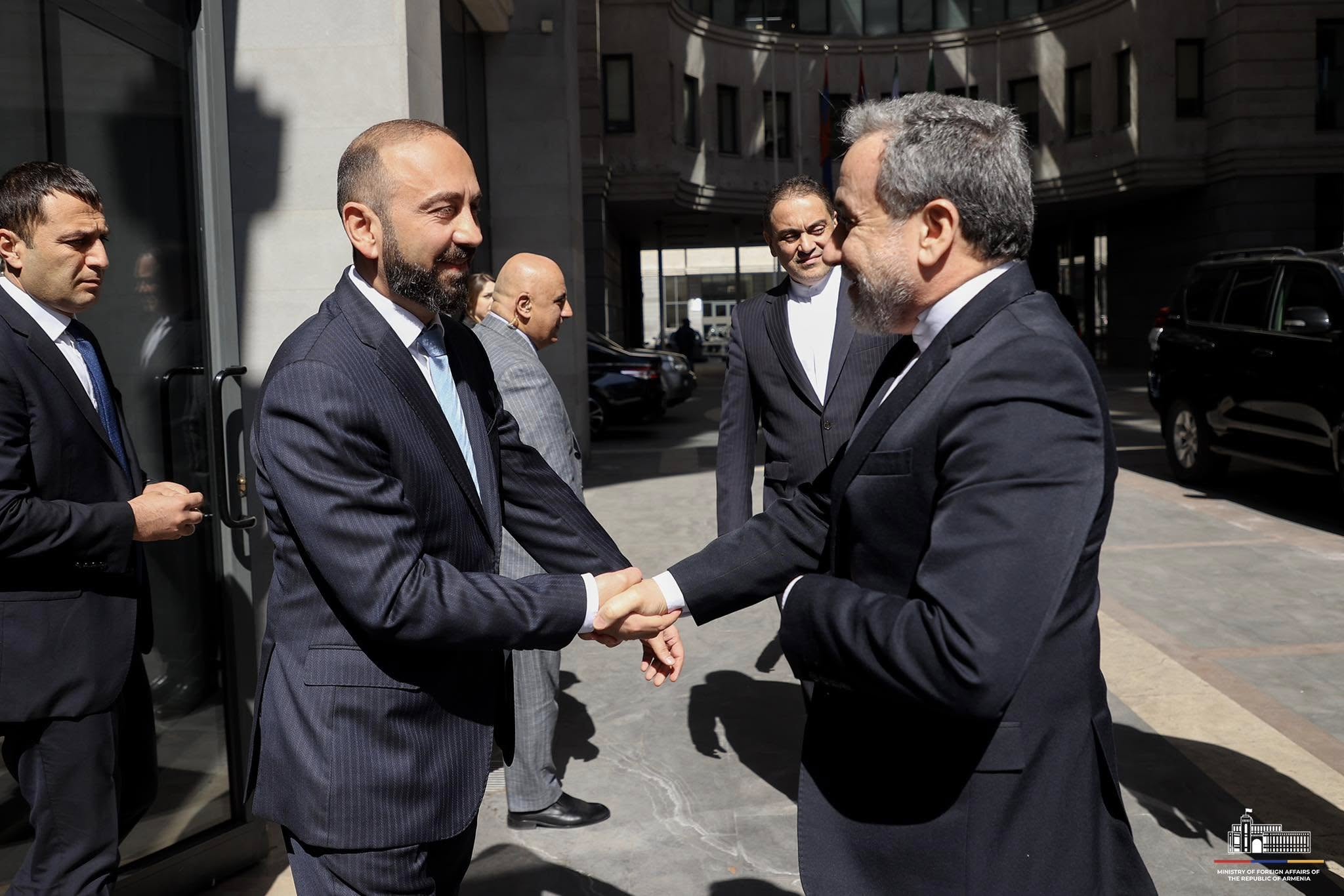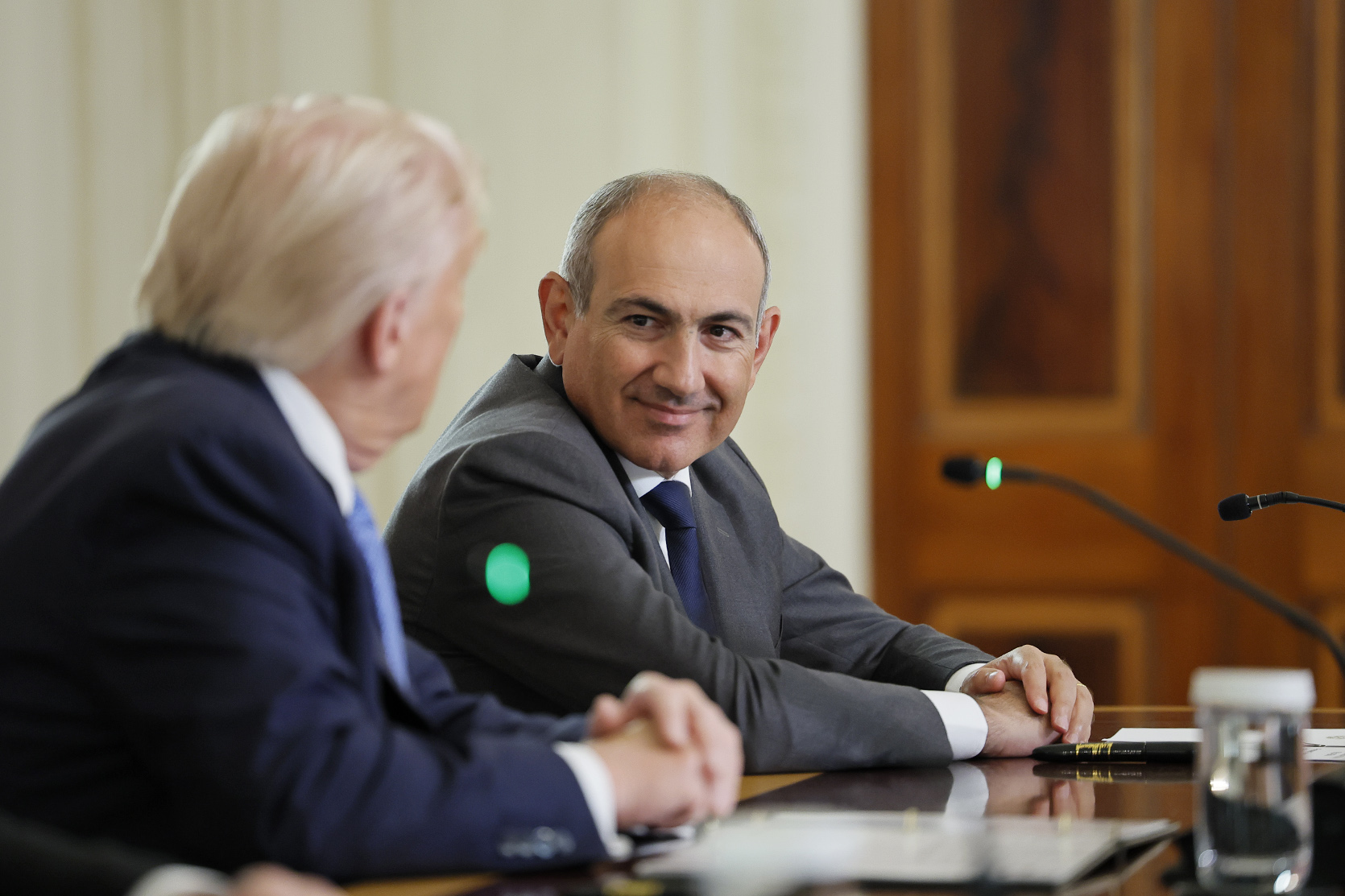‘Armenian-Iranian relations are not a bargaining chip’: Yerevan reassures Tehran
‘Trump’s route’ and Iran’s stance
On 18–19 August, Iranian president Masoud Pezeshkian will pay an official visit to Armenia. The programme includes the signing of important documents, though no details have been disclosed. An Armenian-Iranian business forum will also take place.
“Relations with Iran are of strategic importance to us and cannot be the subject of geopolitical bargaining. This historic and long-awaited visit by the president of Iran will strengthen close political ties and create new opportunities for economic cooperation,” Armenian deputy foreign minister Vahan Kostanyan told Iran’s IRNA news agency ahead of Pezeshkian’s trip.
Kostanyan travelled to Tehran to brief Iran’s leadership on the agreements reached at the Washington meeting between Donald Trump, Nikol Pashinyan and Ilham Aliyev. Iran’s main interest lay in the details of the “Trump route” project, in which the US is expected to participate.
The “Trump route” is a plan to reopen transport links in the South Caucasus, agreed by Yerevan and Baku with the mediation of the US president.
As Pashinyan explained, it is based on the Armenian government’s “Crossroads of Peace” initiative, which rests on four principles: territorial integrity, sovereignty, jurisdiction and reciprocity for all participating states. Like Armenia, Iran has consistently opposed Azerbaijan’s demand for a so-called “Zangezur corridor” – an extraterritorial road to link it with the Nakhchivan exclave.
“The principle here is maintaining territorial integrity, establishing links with Europe, not blocking them from the north. The only concern is that the road is to be built by Armenian and American companies,” Pezeshkian said after receiving clarifications from Armenia’s leadership on the Washington meeting.
At the same time, political analyst Robert Ghevondyan noted what he called “hysterical commentary” from Russia: “It gives the impression that there are people who are more eager to ‘defend’ Iran’s red lines and interests than the Iranians themselves.”
Key points come from the statements of the Armenian and Iranian authorities, along with analysis from an expert.
- ‘Historic summit’: Armenia and Azerbaijan sign documents with Trump’s mediation
- A Tbilisi perspective on the historic Aliyev–Pashinyan meeting
- “Armenia breaks out of isolation”: the significance of the Trump–Pashinyan–Aliyev talks
Iran on the ‘negative consequences of external interference’
Like many other countries, Iran welcomed the initialling of a peace agreement between Armenia and Azerbaijan following the Washington meeting. At the same time, Tehran voiced concern over “the negative consequences of any kind of external interference” near its borders.
“Unblocking communications and transport networks will contribute to stability, security and economic development in the region only if they are implemented within the framework of mutual interests, respect for sovereignty and territorial integrity – without external interference,” Iran’s foreign ministry stressed.
Later, after reviewing some of the details, president Masoud Pezeshkian and foreign minister Abbas Araghchi commented on the situation.
“It’s not as it’s being exaggerated in the news. The Islamic Republic’s demands regarding this route have been taken into account,” Pezeshkian told reporters.
Foreign minister Abbas Araghchi said Iran had been concerned about possible geopolitical changes in the region.
“However, this does not appear to have happened. The possible involvement of an American company in the project is a cause for concern for Iran, and this issue has been discussed with the parties. We are following developments closely.”
On the principles set out in the Washington declaration, Araghchi noted that they were in line with Iran’s position.
“At first there was a threat to seize Syunik, then there was talk of a corridor under Azerbaijan’s sovereignty. Now all those ideas have been transformed into a road to be built by an American company registered in Armenia and under its jurisdiction. The corridor issue has been completely removed from the agenda.”
In a phone call with Iran’s leadership, prime minister Pashinyan thanked Pezeshkian “for the objective assessment of the Washington agreements.” Foreign minister Ararat Mirzoyan also thanked his Iranian counterpart Abbas Araghchi for his “principled response.”
‘Trump’s route’ and Iran’s stance
Armenia takes Iran’s concerns into account
In an interview with Iran’s IRNA news agency, deputy foreign minister Vahan Kostanyan said that negotiations on the “Trump route” project had from the outset taken into account “Tehran’s concerns about the US role.” He revealed some details of the agreement already reached.
“It is planned to register a company in Armenia, with shares split between Armenia and the United States. But this does not mean US involvement in regional security. We know this was Iran’s main concern. A US stake in a company registered in Armenia will benefit the United States. It will also give Iran access to the Black Sea. And we will be able to connect with Russia via Azerbaijan’s railway. We hope this economic interconnection will serve as a bridge to cooperation, not a barrier to it.”
The deputy minister again assured that the Iran–Armenia border will not change. Yerevan has provided Iran with certain guarantees.
“For us, the smooth and unhindered operation of the Iran–Armenia border and crossing points for the movement of goods and passengers is of strategic importance. We do not expect any obstacles in this regard. The unblocking of routes will be carried out in line with the sovereignty and jurisdiction of the countries concerned, which is an additional guarantee,” Kostanyan said.
Kostanyan was in Iran on 12–13 August, meeting foreign minister Abbas Araghchi and his deputy for political affairs Majid Takht Ravanchi. He also held talks with the Supreme Leader’s adviser and head of the Strategic Council on Foreign Relations Kamal Kharrazi, foreign policy adviser Ali Akbar Velayati, and presidential adviser on political affairs Mehdi Sanaei.
During the meetings, Kostanyan stressed that Armenia values Iran’s position on the unconditional respect for Armenia’s territorial integrity. He confirmed that “Armenia, in turn, takes into account Iran’s vital interests.”
Commentary
According to political analyst Robert Ghevondyan, there was a certain unease in Iran after the signing of the Washington documents. He said that following phone calls between Pashinyan and Pezeshkian, Mirzoyan and Araghchi, and Kostanyan’s visit to Iran, Tehran’s perception of the situation shifted.
At the same time, he said, “certain circles in Armenia and Russia” are trying to defend Iran’s interests “with more zeal than the Iranians themselves.”
Ghevondyan pointed out that “hysterical commentary” about alleged violations of Russia’s interests is accompanied by “warnings” such as:
- “There are geopolitical risks for Tehran.”
- “Armenia’s border with Iran will come under external control.”
- “Armenia has handed over its overland transport routes to Iran to an American private company.”
According to him, these claims are being spread by Russian experts, politicians and journalists, including ethnic Armenians living in Russia.
“They are echoed by figures from Armenia’s political and expert circles, who cite ‘fundamental’ geopolitical, regional, psychological and economic problems for Iran. They argue that these will not only pose serious challenges for Iran but also ‘lead to Armenia’s slow death’.”
Ghevondyan said that “extremely concerned” figures in Yerevan and Moscow are trying to “explain” to Iranians what their real interests are.
“Time will tell if they succeed. For now, we are confident that if the Washington agreements are implemented, Armenian-Iranian friendly relations will be further strengthened. Full unblocking of regional infrastructure will reduce security risks and sharply increase the overall potential for economic development.”
‘Trump’s route’ and Iran’s stance





















